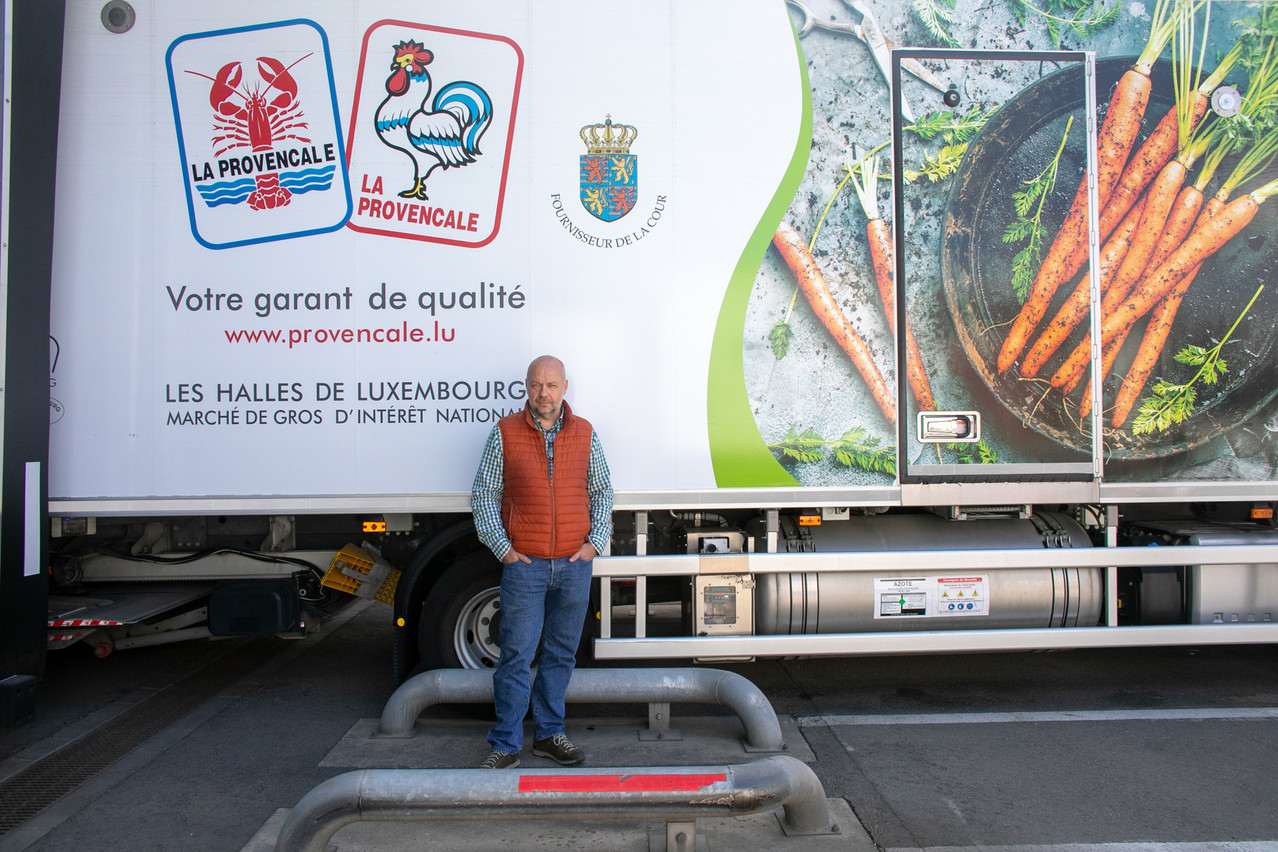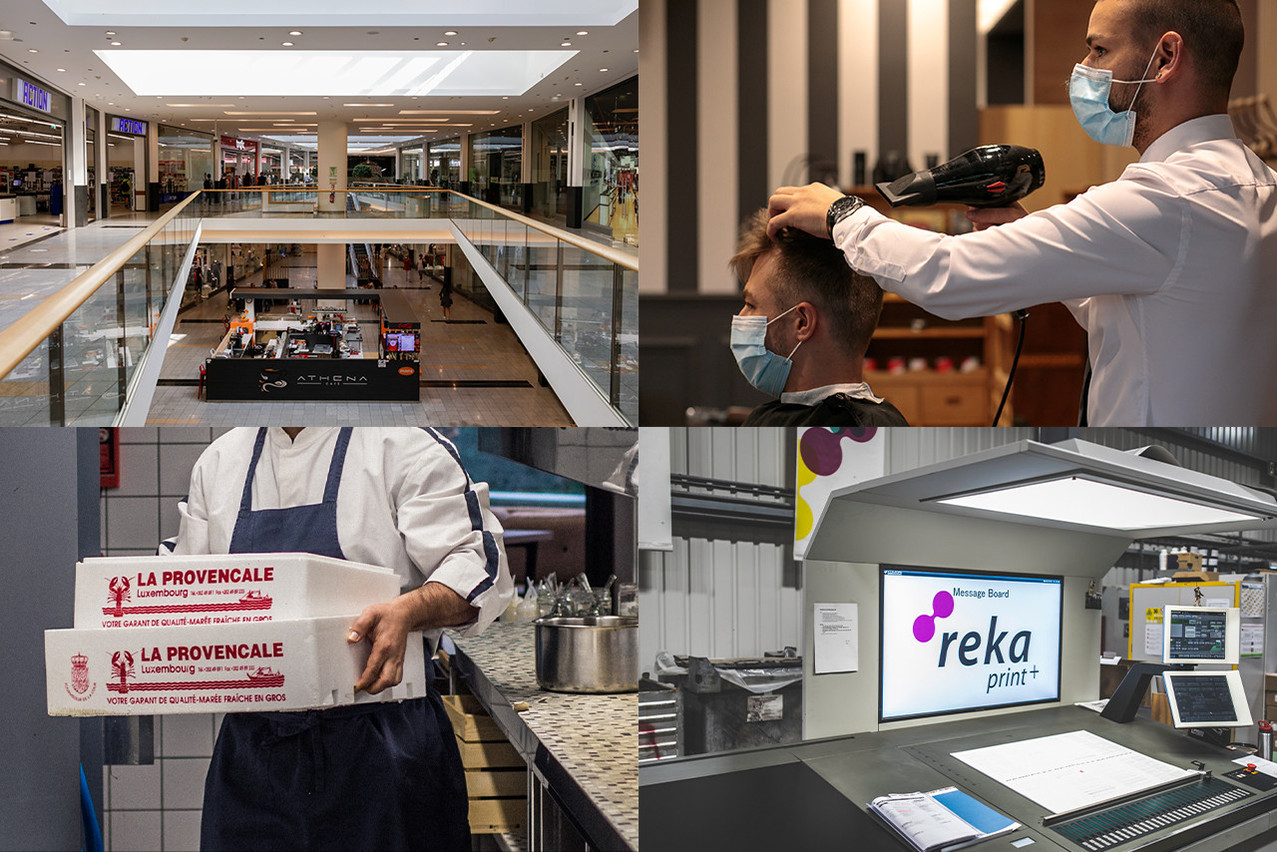Rising gas and electricity costs are affecting all people and businesses, not just the most energy-intensive. From managing bills that have suddenly become exponential to measures to reduce consumption and adapting tariffs, there is no shortage of initiatives companies are willing to try to rebalance their cash flow while having little or no effect on their business in these difficult times.
With its 37,150m2 of walkways, the Belval Plaza shopping centre is the link between the station and the rest of the university town. This configuration prompted its owner to commission an energy audit in the wake of its acquisition in 2020. "We lowered the temperature by two degrees to around 19°C, which is what is recommended for private homes," explains Clément Weber, senior facility manager at Firce Capital. "We have to keep in mind the effect of Covid: it is essential to work with an air renewal system," he adds.
Retailers have been asked by the relevant department to turn off lights at closing time, while the centre's manager plans to install timers on Christmas lights for the first time this year. "We are going to reduce the operating hours to the periods when the centre is open," says director Thierry Debourse.
We have no visibility on the increase in the price of gas and electricity.
With its six hoovers running almost all day as well as compressors, polishers, Kärcher machines, carpet cleaning machines, not to mention its scratch detection lights, Carshine estimates that it consumes an average of 700kW per day. "The main difficulty is that we have no visibility on the increase in the price of gas and electricity because only our landlord has a clearer view, we are waiting and apprehensive," confides Emilien Lacorde, CEO of the automotive services SME based in Bertrange and Luxembourg.
Filling up in France rather than in Luxembourg
For the time being, the company has not increased its rates for private customers and is absorbing the increases in the cost of maintenance products, between 4% and 25% in one year, charged by its suppliers. "Currently, the basic interior and exterior wash is €99, and if we go over the €100 mark, it will be psychologically difficult," explains the manager.
The entrepreneur cannot do without machines for services, but a few initiatives have been taken to limit the energy bill, such as adjusting the heating to a shorter period, optimising the journeys made by employees on business assignments and for the fleet of vans. "I really hope that in March 2023 things will settle down and the period of uncertainty will be behind us," says the boss of a team of 21 employees.
We cannot choose to reduce our service at the expense of the comfort offered to our customers.
In the Ferber hair salons, the savings measures date back to 2017 with the introduction of LED lighting, A-class washers and dryers as well as hair dryers with energy savers. "We can't choose to reduce our service at the expense of the comfort offered to our customers," stress and Lionel Ferber. The two managers estimate that electricity prices will rise by between 30 and 40% this year, in addition to product price increases and .
With energy-efficient laser projectors and a theatre management system that makes it possible to be more efficient in terms of energy consumption, Kinepolis has equipped itself with tools to try to reduce the energy meter of its cinemas. "Our pricing policy has always taken inflation into account," says director Christophe Eyssartier, adding that "price increases cannot be ruled out given current inflation rates.

Although Leudelange wholesaler, La Provençale, is covered by an electricity supply contract until 2025, it is nevertheless facing price increases from its suppliers as well as those for nitrogen, which is used for the refrigerated lorries in its fleet, explains managing partner Georges Eischen. (Photo: Matic Zorman/Maison Moderne)
At La Provençale, the company's cold stores and truck fleet are essential to business. The food wholesaler is experiencing an increase in its energy bill but is limiting the damage thanks to a long-term supply contract. "We have already bought electricity for 2023, 2024 and 2025, so we are protected from future increases," explains managing partner, Georges Eischen.
However, the comany is exposed to increases in the price of nitrogen used for refrigerated trucks, as well as fuel prices, not to mention supplier rates. "We have no choice but to pass on these increases in our prices," admits Eischen.
A shortened ice season at the Kockelscheuer Ice Rink
The Kockelscheuer ice rink is also cool and must remain so at all costs. The City of Luxembourg has shortened the ice skating season, which will end on 3 April instead of 30 April in 2023. The thickness of the ice is also being reduced to its lowest limit, between 3 cm and 3.5 cm, "in order to save water and energy", says the public relations department of the City of Luxembourg.
Read also
The city adds that a series of initiatives have been taken to try to limit the consumption of energy resources in the indoor rink: Reducing the flow time at the showers and washbasins, reducing the flow rate of the toilet flushes, reducing the ambient temperature in the changing rooms and showers (to 22°C) as well as in the lounge, cafeteria and gymnasium (18°C) but also reducing the temperature of the rink for the public (from 16°C to less than 10°C), adapting the lighting, turning off compressors during periods of low use and introducing two new, more economical surfacing machines. "The first results in terms of energy savings are already visible," the municipality assures us.
Estimates between five and eleven times more expensive for electricity
Over at Reka Print, Frédéric Gillen is facing a double price explosion in the cost of paper and energy. The CEO says he was lucky enough to have signed an electricity supply contract at the beginning of 2019. But that contract expires on 31 December next year and the offers the company has received so far have been staggering: between five and eleven times more expensive to supply the presses and other printing machines with electricity.
Gillen explains that he has called in a broker to try to find the cheapest supplier. He is also considering future changes in electricity prices. "I think that we are currently at a peak and that prices will come down in the medium and long term, so signing up now would be a mistake," he says. At the same time, the company. which has 90 employees, is installing photovoltaic panels on its roof. It’s a €200,000 investment which should allow the company to self-produce part of its electricity needs by next summer.
This article was originally published in and has been translated by Delano.
